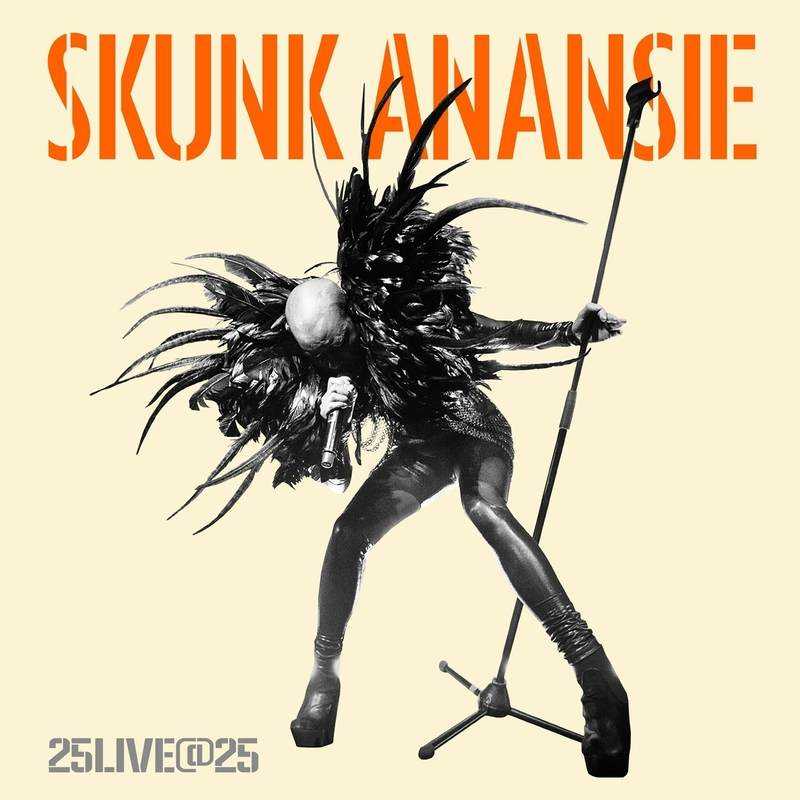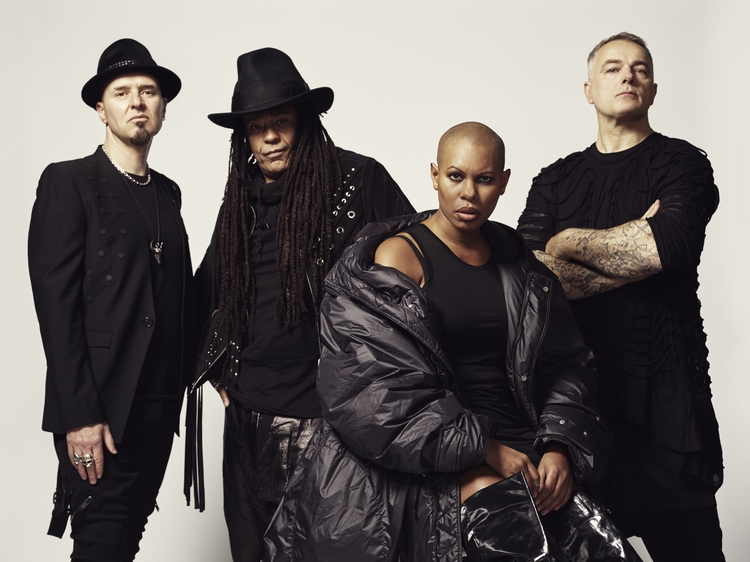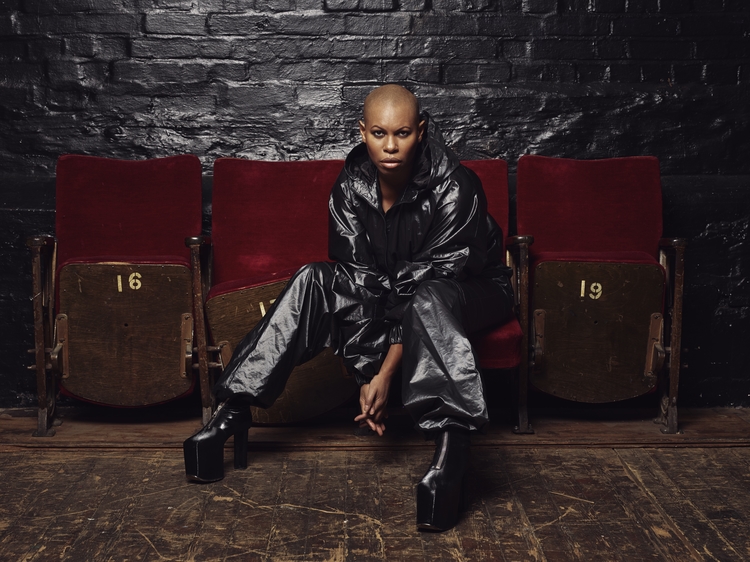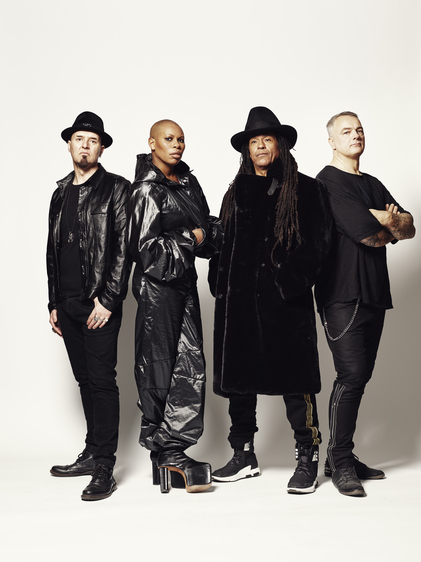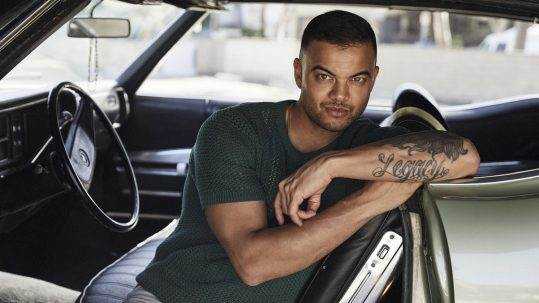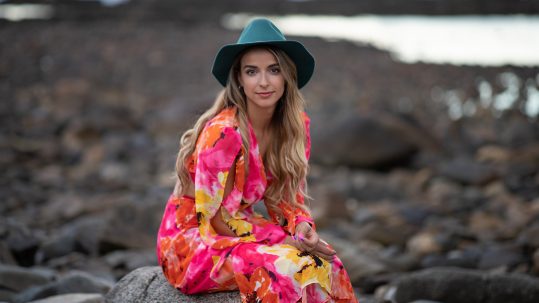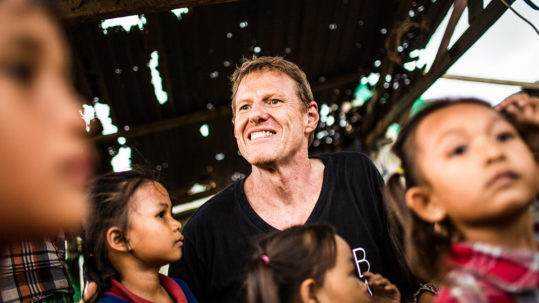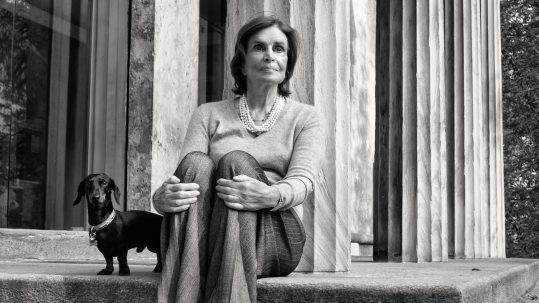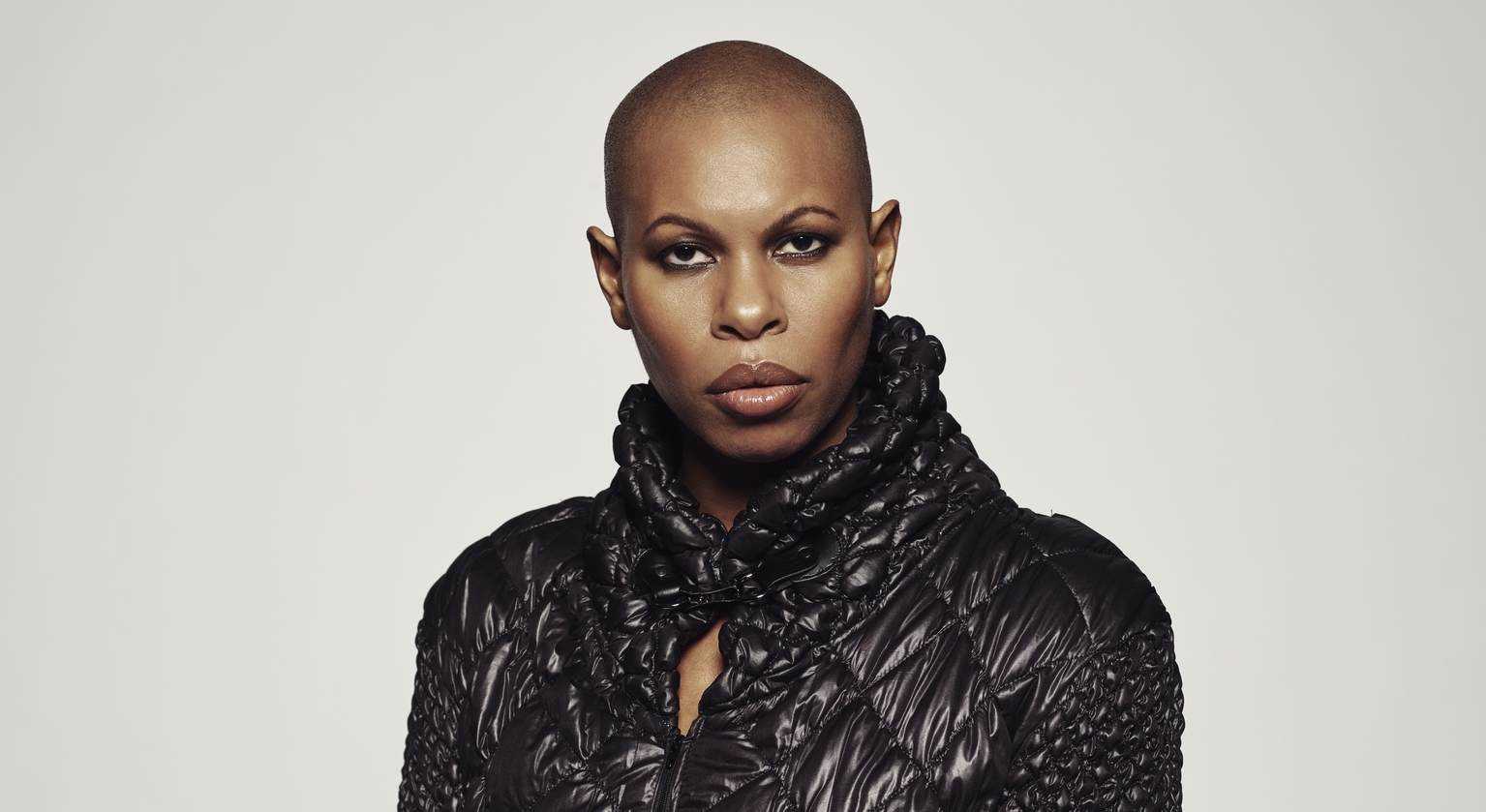
03 Feb SKIN from SKUNK ANANSIE
Photo by Tom Barnes
SKIN from SKUNK ANANSIE
Chart-topping British rock band, Skunk Anansie, just released their 25LIVE@25 anniversary album, celebrating a quarter-century of success, changing the face of rock music forever with their atypical style, electrifying live performances, and a myriad of meaningful hit songs that have become classics. Renowned as one of the most successful UK charts acts, over the years the band has enjoyed international recognition and the unconditional support of an ever-growing audience of faithful fans from all generations. Skunk Anansie is undoubtedly the living proof that quality music is still a currency. I had the great pleasure of speaking with Skin, the lead singer of the band, who, despite the level of excellence she has achieved in her professional field, displays a natural friendliness that is truly humbling.
By Victoria Adelaide | Feb 04. 2019
Victoria Adelaide: You grew up listening to reggae music. What was the link with rock music?
Skin: I grew up in a reggae household—I’m talking about old reggae, so it was more like ska. Then there was this time in the ’70s and ’80s, where all these white bands started picking up ska music and it was a massive thing. But then they played it with guitars and I discovered guitars. When I heard them, it was like one of those bluebeat bands, I recognized their music from my childhood. That was my link to rock music because it was the music I grew up with; it had a different vibe, a different angle and, instead of being played by old Jamaicans, it was played by young white boys. That was really cool; in terms of the sound, they were doing something different.
VA: Which performer inspired you the most in your youth?
S: Bob Marley was my Elvis, but the first time I saw Blondie on TV, it was a bit of a watershed moment and I remember thinking, “Oh, I want to do that; I want to be on stage,” which was weird because of all the people you saw play music on Top Of The Pops, which I watched religiously, it was Blondie who sparked my interest. She was different from everyone else, and the one I thought was that fucking cool. I wanted to be like her.
VA: So you shaved your head to be different, original, like her?
S: Hmmm…Yeah, exactly. I wanted to be cool like her. I wanted to be me. I liked how cool she was, the look, the music, and everything.
VA: You said, “It was hard to be me and still is.” Don’t you think it’s easier nowadays to be ourselves?
S: Yes, I think it’s easier now to find people who are non-conformist. In fact, I feel that people who are non-conformist are more interesting and are more likely to be successful than the regular boring guy. People are more attracted to original artists now because they provide something different. We had decades of white boys playing guitars, and back in the ’90s, I think people were still conforming to the stereotype of what should be a rock band. We were something different, so maybe that was the beginning of a change of heart.
VA: You were different back then, and you still are today because you remain authentic!
S: Exactly. I believe that the most important thing that we ever try to be is authentic. We are ourselves. We weren’t trying to be this or that, to conform to the Brit Pop, to be American, or to be Rage Against the Machine. We were just doing our own Kings Cross, Brixton, London thing, and I think people caught on to that and still do.
VA: What’s the secret of your longevity as a band?
S: We love each other, even if we bitch and moan about each other sometimes. We care for each other, and we are really good friends. From the beginning, we have always had great chemistry and music, and that has never changed. I would be a liar if I were to pretend that everything is rosy and everyone loves each other all the time. If that was true then I think we would make much different music; we would sound like some bland hippy band. The fire comes from four different characters. Any friction we have with each other, we get over it, and we move on. We love being a band, being on stage, and playing together. I think we’re lucky.
Photos: Tom Barnes
VA: I heard you write songs in ten minutes, or in one hour…What’s your songwriting process?
S: Some of the biggest songs I’ve done were written really quickly and some took a while because they were more intricate. There’s a song called Victim, which took a long time to write. Secretly took about twenty minutes. Love Someone Else took ten years to write. I wrote it with someone else in 2007 and it took ten years to get onto a Skunk Anansie album. There are no rules to it. The songwriting process is all four of us. We do have a little studio now where we can go, lay our ideas down, and do stuff in. That seems to be the best way to work.
VA: Can you tell me about The Skunk Anansie Scholarship?
S: Ace works for this college called ACM. So we, together with ACM, have a Skunk Anansie scholarship. We’re working with them because the fees are quite significant to study music at university. We pick one student every year; we pay all of their fees and help them develop their music career. We are currently about to start advertising our third student; we already have two and we’re going to have a third one. It’s something we’re going to do every year.
VA: ’25LIVE@25’ has just been released. How does it feel to release a 25th-anniversary album?
S: It feels really nice. When we started the band, we all saw it as something we wanted to do for a very long time, and it’s great because we feel we achieved it. When we began in rock music, we always looked at bands like Led Zepplin, Motorhead, The Rolling Stones, and The Beatles. We thought these are bands that made their career in music and that was our attitude. It was a normal thing to presume that we were going to be in a band for the rest of our lives and that is how we were going to make a living. Now it’s very different. In this industry, people don’t have such a long-term plan and we are happy to have achieved a career in music, to create music, and to enjoy it.
VA: I love the fact that you also released the album in double cassette format! (smiles)
S: Yes! We always do vinyl. We thought, “Let’s do a cassette! We don’t care if people don’t have cassette players anymore, let’s just go old school for our 25 years.” Our very first track was a little mixed tape on a cassette, so we decided to bring it back, just for fun. All the kids love it, and we have had an amazing response.
VA: Is there’s a song in the album that’s special to you?
S: I like, My Love Will Fall, the way that song moves, and the fact that it starts with a bassline only. But my favorite would be Intellectualise My Blackness because it’s an absolute stomper when performed live. It’s really old school, early days Skunk Anansie; it was written before we even did a live gig. We played that song on our very first gig. We didn’t play it for years because I totally went off and I thought that lyrically and politically we had just moved on but then we brought it back on the last album in 2015. Yeah, now it sounds good.
VA: Having been performing for 25 years, I imagine you must have all ranges of ages in your audience?
S: We do, actually. We are one of the bands where the parents take their kids to the concert, and instead of coming back to pick them up they stand at the back. At the front, we have all the kids going crazy and moshing and, at the back, we have their parents nodding along and being happy with a beer. (laughs)
VA: What would be your advice to young artists being torn between that desire for authenticity and the music industry’s directives?
S: I think the most important thing for an artist is to be authentic. It’s very difficult as a kid to figure out what you want to be and who you are. Especially these days with social media, there’s so much pressure to conform to the latest internet meme or the latest thing that’s going viral. It’s important to stay true to yourself. Once you find that, you must stick to it but be open so as not to fall into the rut of yourself and just be that one thing that you are comfortable with for the rest of your life. We are in difficult times. The establishment cares about selling things to them but not about them—not about their welfare or things that are good to them. We did fight for LGBT rights, trans rights, and black people’s rights. All of those rights are the things that we fought for them to have. What I have to say to those kids is be politicized. Know your politics, get a point of view and then fight for it to maintain and keep it.
VA: Yes…I’ve got friends in London who are concerned about how Brexit may impact their artist life, touring…
S: The thing about Brexit is that nobody knows what’s happening. Brexit was founded on racism. In England, the reason why we have Brexit is that we have two charismatic leaders: Nigel Farage, and Boris Johnson, who is just out for himself. He wants to be a leader and he’s going to do anything he can to achieve it, even if he’s not really a Brexiter. He did that because he thought it would get him elected as a leader but it didn’t. The public was lied to but now that people understand that Brexit is a disaster, that it was not a good idea in the first place, we should have a second referendum. They tried to make it work. I think it’s been a great exercise and education for everybody, but it’s proving to be a mess for the country. For England, this is the biggest political turmoil that we’ve had for many decades, and it has to end.
VA: You have a tour coming up in spring. How do you prepare for that? Frankly, I’d like to keep in shape as you do! (smiles)
S: I’m not in shape right now; I’m just at the beginning of getting into shape. I had a fun Christmas; I ate what I liked, I partied, I drank, and I did all the things we are not supposed to do. So, now I’m very strict in preparing for the tour, I have to get back to being the lead singer of the band.
→ Tour Dates
→ The Skunk Anansie Scholarship
* Special thanks to Wilful Publicity
...We love being a band, being on stage, and playing together. I think we’re lucky.``

